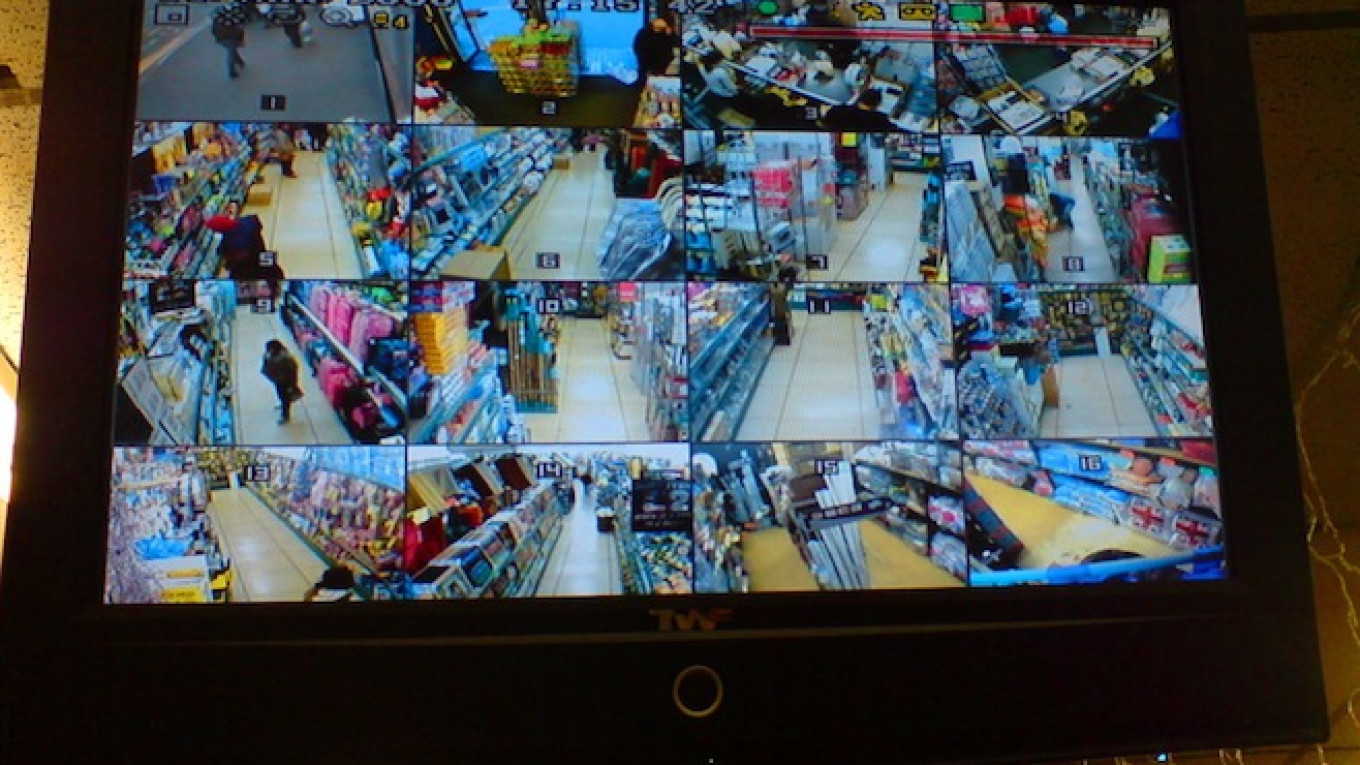With real incomes sinking under the weight of Russia's economic crisis, shoplifting has been on the rise across the country, the Izvestia newspaper reported.
In the past year, some 930 million rubles' ($16 million) worth of goods have been swiped from the shelves of Russian shops — a considerable increase from the 648 million rubles' worth of goods pilfered the previous year, Izvestia reported, citing data provided by the Federal Tax Service.
Moscow dominated the shoplifting trend, with some 55 percent of the goods reported stolen in the past year having been taken from its stores. Krasnoyarsk and Sverdlovsk endured the second and third highest rates of pilfering, respectively.
Russia's most honest regions were found in the North Caucasus and the Far East. Nothing was reported stolen in Chechnya, Dagestan, Ingushetia or the Magadan region.
Small but relatively pricey items were favored among Russian shoplifters, such as top-shelf alcohol, caviar and cosmetics, Interfax reported.
But goods that could be swiped while waiting in a shop's checkout line — such as chocolate bars and razors — likewise proved to be hot-ticket items.
The falling price of oil and several waves of sanctions imposed against Russia by the West in connection with the annexation of Crimea and the ongoing Ukraine conflict led the ruble to lose 40 percent of its value against the dollar in 2014, helping plunge the country into an economic crisis.
As the ruble weakened, inflation soared, reaching 11.4 percent last year.
Meanwhile, Russians' real incomes have been been sinking in recent months. In 2014, they fell by almost 1 percent — the first such decrease since President Vladimir Putin came to power in 1999. The trend has continued into 2015, with real incomes plunging by 3.1 percent in the first half of the year, news and analysis site Slon.ru reported.
Contact the author at i.nechepurenko@imedia.ru
A Message from The Moscow Times:
Dear readers,
We are facing unprecedented challenges. Russia's Prosecutor General's Office has designated The Moscow Times as an "undesirable" organization, criminalizing our work and putting our staff at risk of prosecution. This follows our earlier unjust labeling as a "foreign agent."
These actions are direct attempts to silence independent journalism in Russia. The authorities claim our work "discredits the decisions of the Russian leadership." We see things differently: we strive to provide accurate, unbiased reporting on Russia.
We, the journalists of The Moscow Times, refuse to be silenced. But to continue our work, we need your help.
Your support, no matter how small, makes a world of difference. If you can, please support us monthly starting from just $2. It's quick to set up, and every contribution makes a significant impact.
By supporting The Moscow Times, you're defending open, independent journalism in the face of repression. Thank you for standing with us.
Remind me later.


